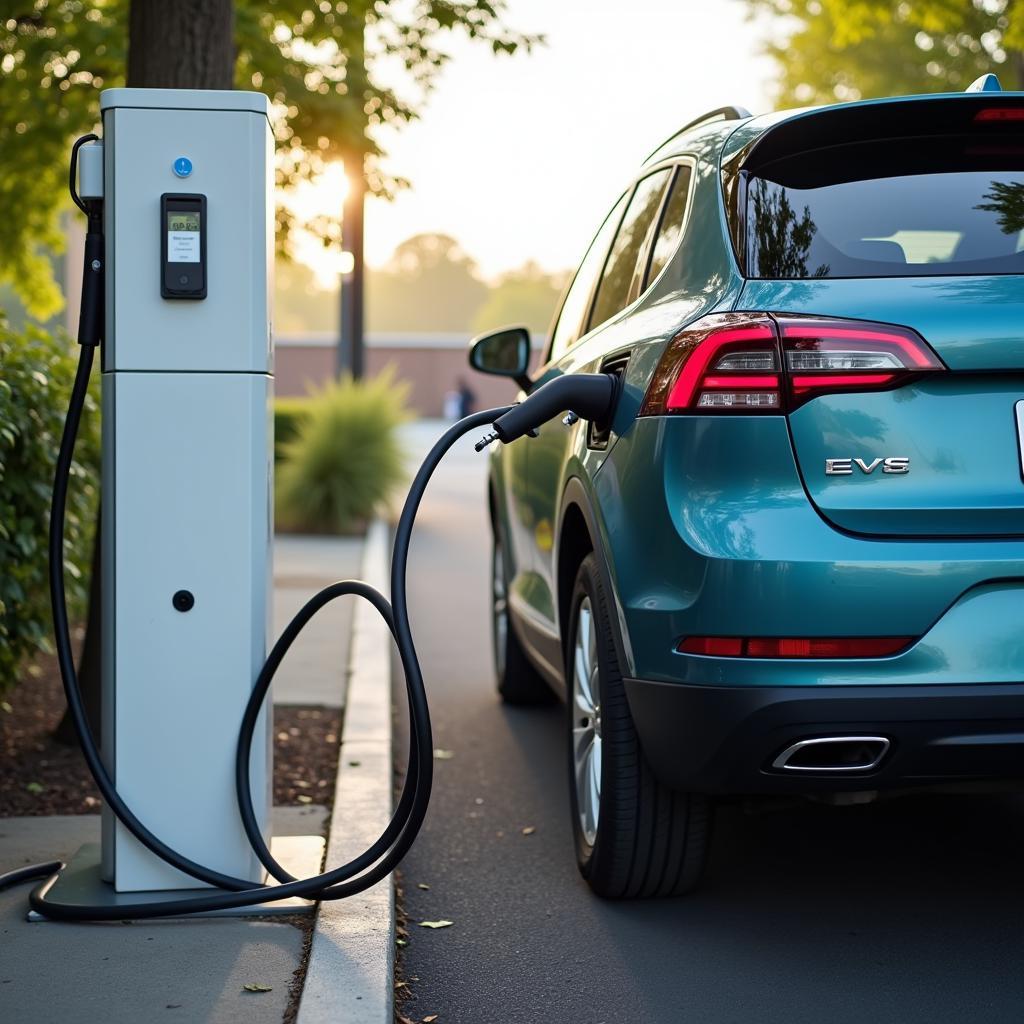Gas cars and their environmental impact are a hot topic these days. It’s a question many of us are grappling with as we become more aware of our planet’s health. From tailpipe emissions to the extraction and refining of crude oil, the lifecycle of gasoline-powered vehicles has undeniable environmental consequences. But how significant are these problems, and what can we do about them?
Exploring the Environmental Impact of Gasoline Cars
The internal combustion engine (ICE) that powers most gas cars relies on the burning of fossil fuels. This combustion process releases a cocktail of pollutants into the atmosphere, including carbon dioxide (CO2), nitrogen oxides (NOx), and particulate matter (PM). These emissions contribute to a range of environmental problems.
Greenhouse Gas Emissions and Climate Change
CO2, a major byproduct of burning gasoline, is a potent greenhouse gas. It traps heat in the atmosphere, contributing to global warming and climate change. The transportation sector, heavily reliant on gas cars, is a significant contributor to global greenhouse gas emissions. This leads to rising sea levels, more frequent and intense extreme weather events, and disruptions to ecosystems worldwide.
Air Quality and Respiratory Health
NOx and PM, also released from gas car tailpipes, contribute to poor air quality, particularly in urban areas. These pollutants can trigger respiratory problems like asthma and bronchitis, especially in children and the elderly. They also contribute to smog formation, reducing visibility and impacting overall quality of life.
 Gas Car Emissions Contributing to Air Pollution
Gas Car Emissions Contributing to Air Pollution
Beyond Tailpipe Emissions: A Broader Environmental Perspective
The environmental footprint of gas cars extends beyond just tailpipe emissions. Consider the entire lifecycle, from the extraction of crude oil to the manufacturing of vehicle components and the eventual disposal of the car itself.
The Environmental Cost of Oil Extraction and Refining
Extracting and refining crude oil is an energy-intensive process with its own set of environmental consequences. Oil spills, habitat destruction, and water contamination are just some of the potential impacts. These upstream effects add to the overall environmental burden of gas cars.
The Manufacturing Process and Resource Consumption
Producing a car, regardless of its power source, requires significant resources and energy. Mining for metals, manufacturing plastics, and assembling the various components all have environmental implications. However, advancements are being made in sustainable manufacturing practices to mitigate these impacts.
End-of-Life Vehicle Management and Recycling
What happens to a gas car at the end of its useful life? Proper disposal and recycling are crucial to minimize environmental impact. Recycling metal and other materials reduces the need for new resource extraction, lessening the overall environmental footprint.
What Can We Do? Moving Towards a Sustainable Transportation Future
While gas cars present significant environmental challenges, there are steps we can take to mitigate their impact and transition towards a more sustainable transportation future.
Fuel Efficiency and Vehicle Maintenance
Maintaining your gas car properly and ensuring it’s running efficiently can help reduce its environmental impact. Regular tune-ups, proper tire inflation, and adopting fuel-efficient driving habits can all make a difference.
Exploring Alternative Transportation Options
Consider alternatives to driving alone in a gas car. Public transportation, biking, walking, and carpooling can significantly reduce your carbon footprint. For longer distances, consider train travel or electric vehicles.
Embracing Electric and Hybrid Vehicles
Electric vehicles (EVs) and hybrid vehicles offer a cleaner alternative to traditional gas cars. While the production of EVs also has environmental impacts, their operation produces zero tailpipe emissions, significantly reducing their contribution to air pollution and greenhouse gas emissions.
 Electric Vehicle Charging at a Public Station
Electric Vehicle Charging at a Public Station
Conclusion: Addressing the Environmental Challenges of Gas Cars
Do gas cars cause environmental problems? The evidence points to a resounding yes. From greenhouse gas emissions and air pollution to the environmental costs associated with oil extraction and vehicle manufacturing, the impact is significant. However, by understanding these challenges and embracing sustainable practices, we can pave the way for a cleaner, greener transportation future. We encourage you to connect with us for further assistance and information. Contact AutoTipPro at +1 (641) 206-8880 or visit our office at 500 N St Mary’s St, San Antonio, TX 78205, United States.
FAQ
- What is the biggest environmental concern related to gas cars? The contribution to climate change through greenhouse gas emissions is arguably the biggest concern.
- How do gas cars affect air quality? They release pollutants like NOx and PM, which contribute to smog and respiratory problems.
- Are there any environmental benefits to gas cars? While limited, advancements in fuel efficiency and emissions control technologies have reduced their impact compared to older models.
- What are some sustainable alternatives to gas cars? Electric vehicles, hybrids, public transport, biking, and walking are all viable alternatives.
- How can I reduce the environmental impact of my gas car? Regular maintenance, fuel-efficient driving, and considering alternatives for shorter trips can help.
- What is the role of government regulations in addressing gas car emissions? Regulations play a crucial role in setting emission standards and promoting the adoption of cleaner vehicles.
- What are the long-term implications of continued reliance on gas cars? Continued reliance could exacerbate climate change and further degrade air quality, posing significant risks to human health and the environment.






Leave a Reply